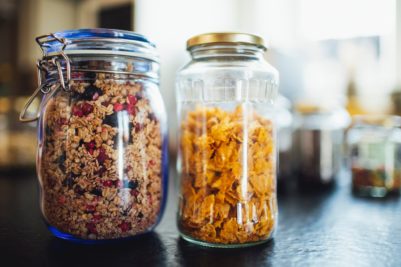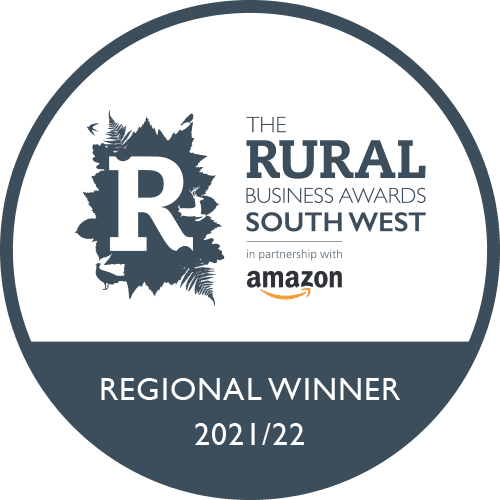It probably won’t come as a surprise that here at The Outdoors Group, we are passionate about looking after the environment and the world we live in. Whether it’s a product of working outdoors all year round or whether that’s the reason we work here, it’s not uncommon for our monthly staff newsletter to contain handy planet-saving tips alongside news of what our colleagues have been up to. Consequently, we couldn’t let July slide by (and this year really is disappearing at a rate of knots!) without tipping our hat to Plastic Free July.
But What Is It?
Plastic Free July is in an initiative from the Plastic Free Foundation, a not-for-profit organisation committed to working towards a world free of plastic waste. The key word here is waste. No one is denying that plastic is a useful material and has many practical and worthy applications. However, the issue is with the amount of single-use plastic and plastic waste that our consumerist society creates. We’ve all seen Blue Planet and heard David Attenborough’s plea for us to make changes to our lifestyles before it’s too late…you don’t need another lecture here and I promise you won’t get one!
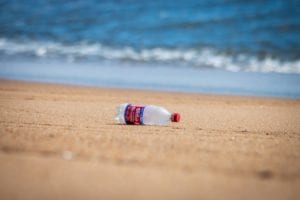
Plastic Free July asks you to have a look at your life and see where you can make swaps to reusable products or in some cases, whether the plastic was needed in any form in the first place. Those behind this initiative have even created a handy quiz that you can take to help you see where you might be able to make changes to protect the planet. One of the core principles of the Plastic Free Foundation is ‘the belief that small changes add up to a big difference’ and a focus on providing solutions and here at The Outdoors Group, we would completely agree! So we thought we’d have a look at a few swaps you might be able to make that you haven’t thought of yet to help reduce your household’s plastic waste.
Pandemic Necessities
One of the things that has become a must have in most homes over the last few weeks and months are face masks (or coverings) and anti-bacterial handwash. Clearly, preventing the spread of covid-19 is of utmost importance to protect the vulnerable among us but there is a way to protect the environment at the same time. So, walk past those disposable face masks in the shops and why not consider wearing a fabric face mask or covering? A plethora of instructions for making your own have sprung up all over the internet and even I managed to transform an old t-shirt into a mask for a last-minute orthodontist appointment! But if you don’t have the time or inclination, there are many people making and selling an array of beautiful masks both in local shops and on the internet. You might need two – one to wear and one to wash but you’ll be saving countless disposable versions from the landfill, so I think it’s worth it!
And for those of us who like to spend a lot of time outdoors with our families, you’ll know that there are not always hand washing facilities available when they’re needed. Dartmoor, for one, is a little sparse on fully plumbed sinks… Anti-bacterial hand gel seems to come exclusively in plastic bottles but we bought one very large bottle and then a small one with a pump that we can refill from the first to reduce the number of plastic bottles we need to buy.
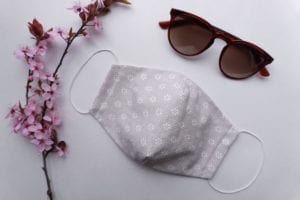
Bathroom Products
The kitchen is often the first room you think of when you think about plastic waste whether it’s water bottles, lunch boxes, tupperware or beeswax covers (an alternative to clingfilm) but it’s not the only room in the house! There are plenty of changes that can be made in the bathroom if you’ve got the time and incentive.
- One of the first changes we made was to buy old fashioned safety razors. Yes, there’s still blades to dispose of but it’s infinitely less waste than your old bic or disposable gillette. A lot of people are put off as they’re worried about cutting themselves but as long as you’re careful, they’re just as safe (clue is in the name). Just keep them out of reach of inquisitive small hands…
- Sales of bar soap have been on the rise over the last few years and for good reason, they are virtually zero plastic compared to the liquid alternative. I did a soap making course in North Devon last year for my Mum’s birthday and was surprised to learn that not only is it easy to do at home but that good quality is infinitely better for your skin due to the ingredients used. Obviously, I’m not suggesting everyone makes their own but why not check out some of the many gorgeous handmade soaps you can buy from small local businesses and ditch the sickly-sweet liquid hand soap?
- Similarly, shampoo and conditioner bars are all the rage right now! You may need to do a little research to find the right one for your hair type but those I’ve spoken to that have converted swear by them now.
- Finally, many of us have already made the switch to bamboo toothbrushes but did you know you can now buy tooth tabs (with fluoride) in place of plastic tubes of toothpaste? They’re on my list of things to switch to this month…

Planning Ahead – Less Haste, More Speed
From a personal perspective, the most effective way I’ve found to reduce single-use plastic and plastic waste in our family is just to work on my forward-thinking skills. With three home educated kids and a job to juggle, this is easier said than done (as will be the case for many parents reading this) but I think it’s worth trying for the sake of the planet. For my family, this means always making sure I have a bottle of water, snacks and a reusable shopping bag whenever I leave the house (yes, apparently even a 30 minute scoot round the estate means one of my children will dramatically beg for water if I’ve dared leave without it!) What you need to take with you might look different in your life but by anticipating what the day or trip ahead holds, you’re less likely to get caught out and need to buy something in single-use plastic to placate grumpy small (and not so small) folk!
If we want to keep enjoying the gorgeous countryside that we are lucky to have on all sides here in Devon, we all need to do our part. And whilst there is the argument that the problem is much larger than one person’s actions, you can’t deny that it won’t hurt to at least try and make a small impact through our own changes. At the very least, by voting with our wallets, companies will see that consumers have had enough of the unnecessary and harmful waste. As author Helen Keller said, ‘Alone we can do so little; together we can do so much’. So why not take the quiz linked above and see if there’s any changes you can make in your life to reduce plastic waste this July?
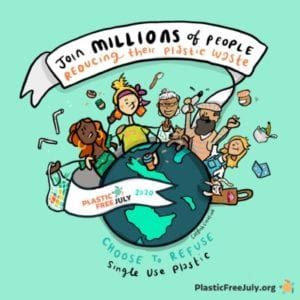
Author: Hannah Durdin
Date: Saturday 18th July 2020
